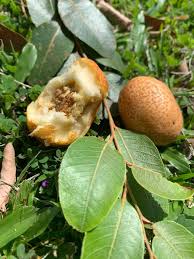Have you ever heard about a fruit known as Nonda Plum? It might be an unfamiliar name to many, but this fruit holds many nutritional benefits. The Nonda Plum, also recognized as the Kakadu plum, is native to Australia and is an essential aspect of the traditional Aboriginal diet. This article will shed light on the nutritional composition of Nonda Plum, its various potential health benefits, and how you can incorporate it into your dietary regimen.
Discover How This Simple “Meal Plan” Change My Life
What is the Nonda Plum?
Before delving into the granular details of the nutritional content of Nonda Plums, let's first understand what this fruit is. Nonda plums, scientifically known as Buchanania obovata, are a species of flora commonly found in the northern regions of Australia. This fruit has been a crucial part of the indigenous people's diet for thousands of years due to its rich nutritional profile.
The fruit is small, approximately the size of an olive or cherry, with a uniquely tart taste. It ripens to a bright yellow color and is generally harvested from March to June.

Discover How This Simple “Meal Plan” Change My Life
Nutritional Breakdown of Nonda Plum
One of the defining characteristics of Nonda Plum lies in its impressive nutritional content. This humble fruit boasts an impressive lineup of essential vitamins and minerals.
Vitamin C
Nonda Plums are a potent source of Vitamin C. In fact, they have the highest natural concentration of Vitamin C of any food in the world. To put this into perspective, Nonda Plums contain about 50 to 100 times more Vitamin C concentration than oranges. This antioxidant-rich fruit promotes immune system health, aids in collagen production, and may help combat cardiovascular disease.
Dietary Fiber
This fruit is also rich in dietary fiber, assisting in digestive health by adding bulk to your diet and promoting regular bowel movements. High-fiber diets have also been linked to reduced risk of diseases such as heart disease, diabetes, and certain types of cancer.
Iron
Alongside these, Nonda Plums also contain iron which is a crucial component of hemoglobin, the substance in red blood cells that carries oxygen from your lungs to transport it throughout your body. Iron also assists in energy production and aids in maintaining healthy skin, hair, and nails.
Here's a simple breakdown of the nutritional content of Nonda Plums:
| Nutrient | Amount per 100g |
|---|---|
| Vitamin C | 3000mg |
| Dietary fiber | 8.8g |
| Iron | 0.12mg |
Potential Health Benefits of Nonda Plum
Beyond their interesting taste and robust nutritional profile, Nonda Plums have numerous potential health benefits.
High Antioxidant Content
Nonda Plums have almost five times the antioxidant content of blueberries, making them potentially valuable in combating oxidative stress and inflammation. Antioxidants play a crucial role in reducing the risk of chronic diseases, such as heart disease and cancer.
Supports Immune Health
The insanely high levels of Vitamin C present in Nonda Plums make it a strong ally for the immune system. Vitamin C is known to enhance the body's ability to defend against various diseases, contribute to better skin health, and speed up the wound healing process.
Enhances Digestive Health
The high amount of dietary fiber in Nonda Plums adds bulk to your stool, aids in easier digestion and regulates bowel movement, thus helping prevent constipation.
Supports Iron Absorption
Vitamin C enhances the absorption of non-heme iron, the type of iron found in plant-based foods. Thus, consuming Nonda Plums can potentially prevent iron deficiencies and related conditions such as anemia.

Incorporating Nonda Plum into Your Diet
Given the numerous health benefits associated with Nonda Plum, you might be wondering how to consume this fruit. Fresh Nonda Plums can be eaten raw, much like any other fruit. They carry a tangy flavor that can be a delicious addition to salads, smoothies, and other dishes.
Alternatively, Nonda Plum products such as powders and teas are also available on the market. The powder can be added to smoothies, yogurts, or used in baking for an additional nutrition boost.
In conclusion, the humble Nonda Plum is a small fruit with big nutrition. It's an excellent source of Vitamin C, dietary fiber, and iron, potentially providing a range of health benefits from enhanced immune function to improved digestive health. Whether eaten fresh or as part of a product, adding Nonda Plum to your diet can ensure you enjoy these nutrients and health advantages.
Discover How This Simple “Meal Plan” Change My Life
Lamartine is an experienced researcher who produces evidence-based content focusing on health, wellness, supplements, lifestyle, and utilities. On the website holistichealthpathways.com, he offers objective, research-backed information to help readers make informed choices.


